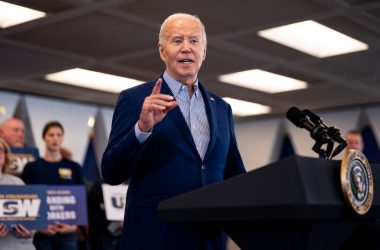The Biden administration has decided not to announce the completion of a new Asian-Pacific trade pact at an international meeting in San Francisco, after facing opposition from several top Democratic lawmakers. The pact in question, the Indo-Pacific Economic Framework for Prosperity, aims to strengthen alliances and economic ties among the United States and its allies in East and South Asia.
This decision comes after criticism from lawmakers such as Senator Sherrod Brown of Ohio, who raised concerns about the lack of protections for workers in the countries covered by the agreement. The Biden administration had been aiming to announce the conclusion of substantial portions of the pact but has now pulled back due to the potential for further criticism.
The agreement has been a key element of the Biden administration’s strategy to counter China’s growing influence in Asia by strengthening relations with allies. The framework’s partners include Australia, Indonesia, Japan, South Korea, and Singapore, accounting for 40 percent of the global economy.
While the administration still plans to announce the substantial conclusion of other portions of the agreement, the trade pillar has proved to be the most contentious. Lawmakers from both parties have expressed concerns about labor and environmental standards, and have criticized the administration for not consulting Congress closely during the negotiations.
The decision to delay the finalization of the trade measures is seen as a setback for the Biden administration’s strategic plans for Asia. It highlights the complexity of trade politics, particularly for Democrats who often prioritize protecting workers and the environment in trade agreements.
From a unique perspective, it is clear that the negotiation and finalization of trade agreements involve numerous stakeholders and complex considerations. Balancing economic interests, worker protections, and environmental standards is a challenging task, and finding a middle ground that satisfies all parties involved can be difficult.










